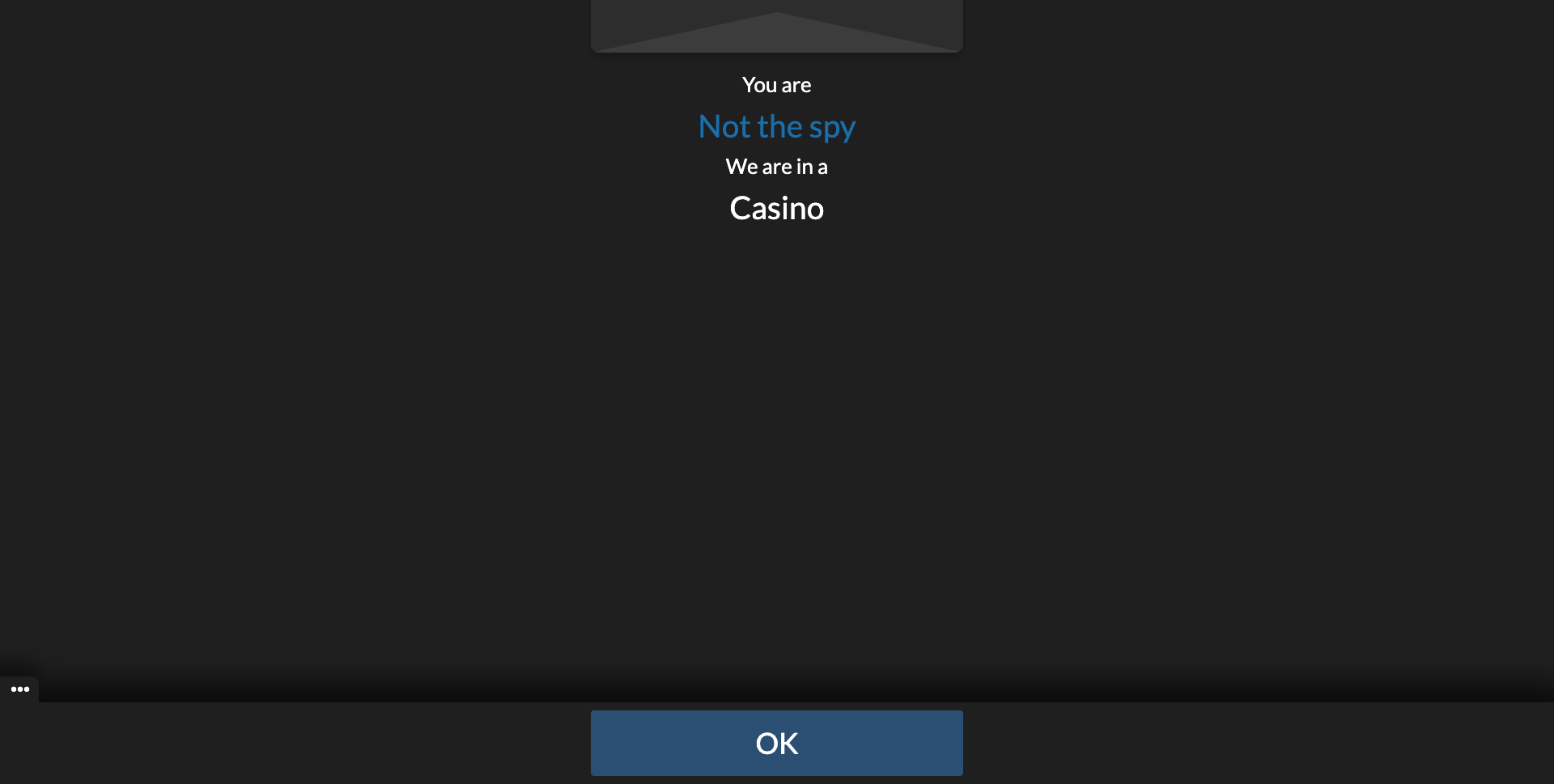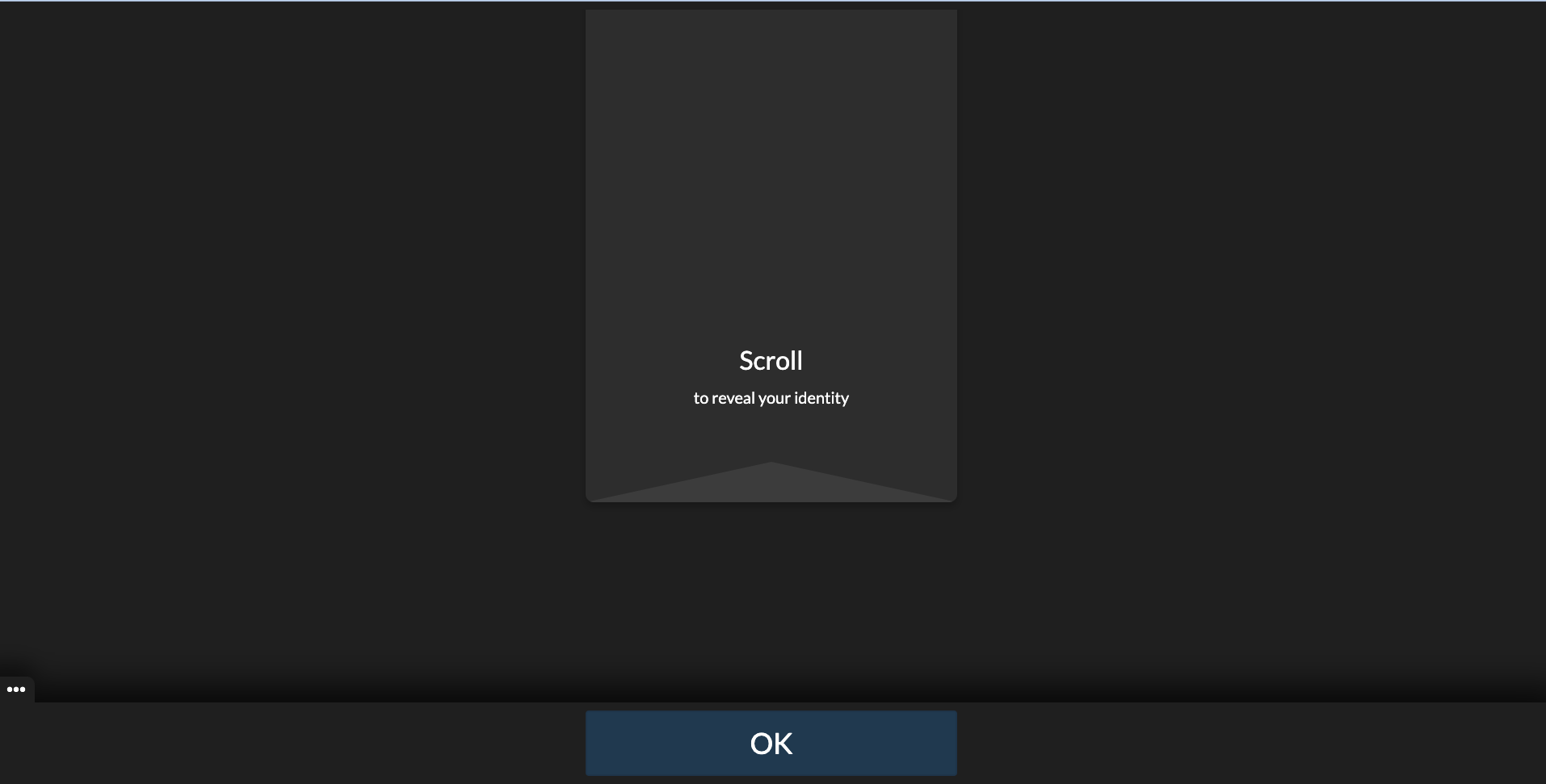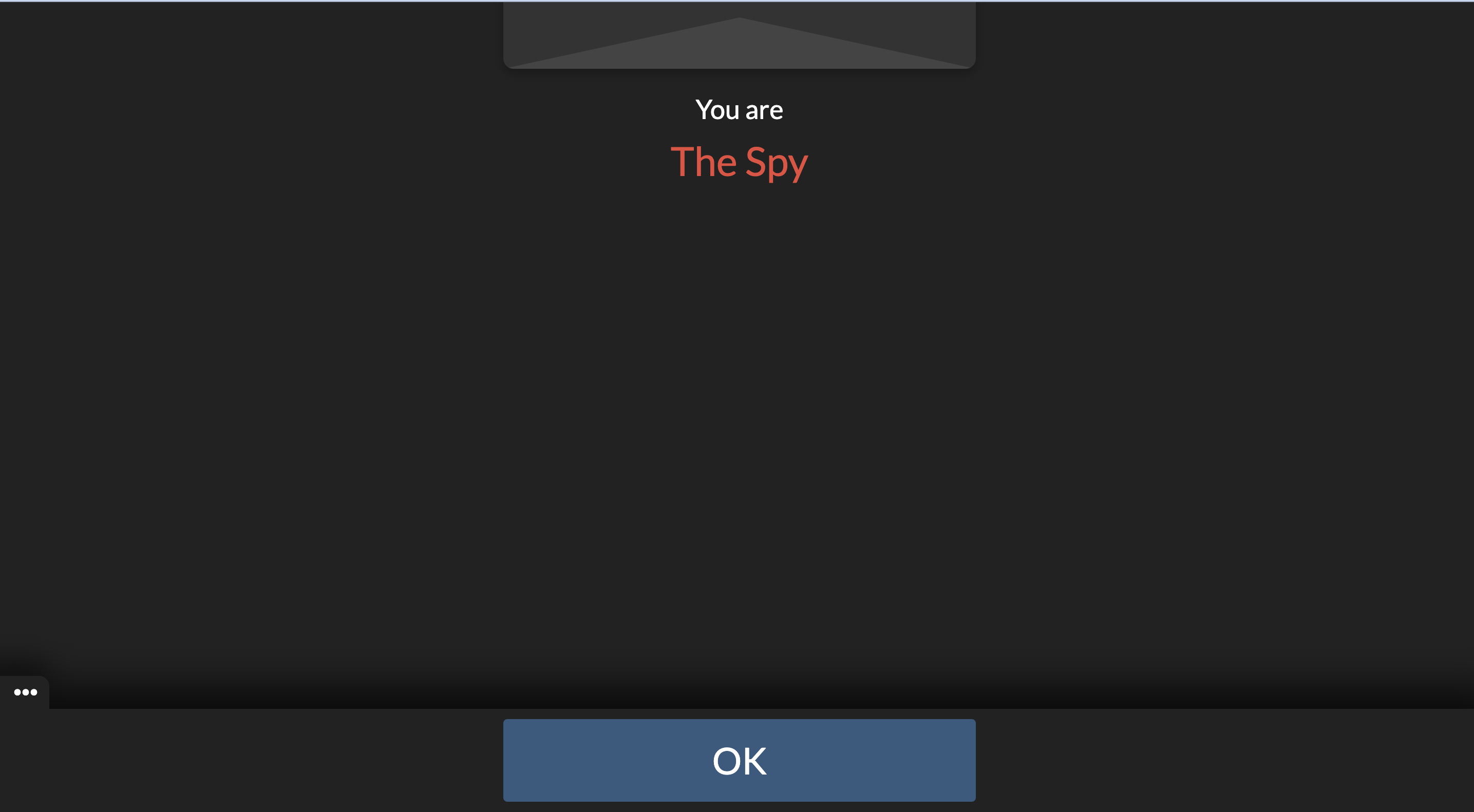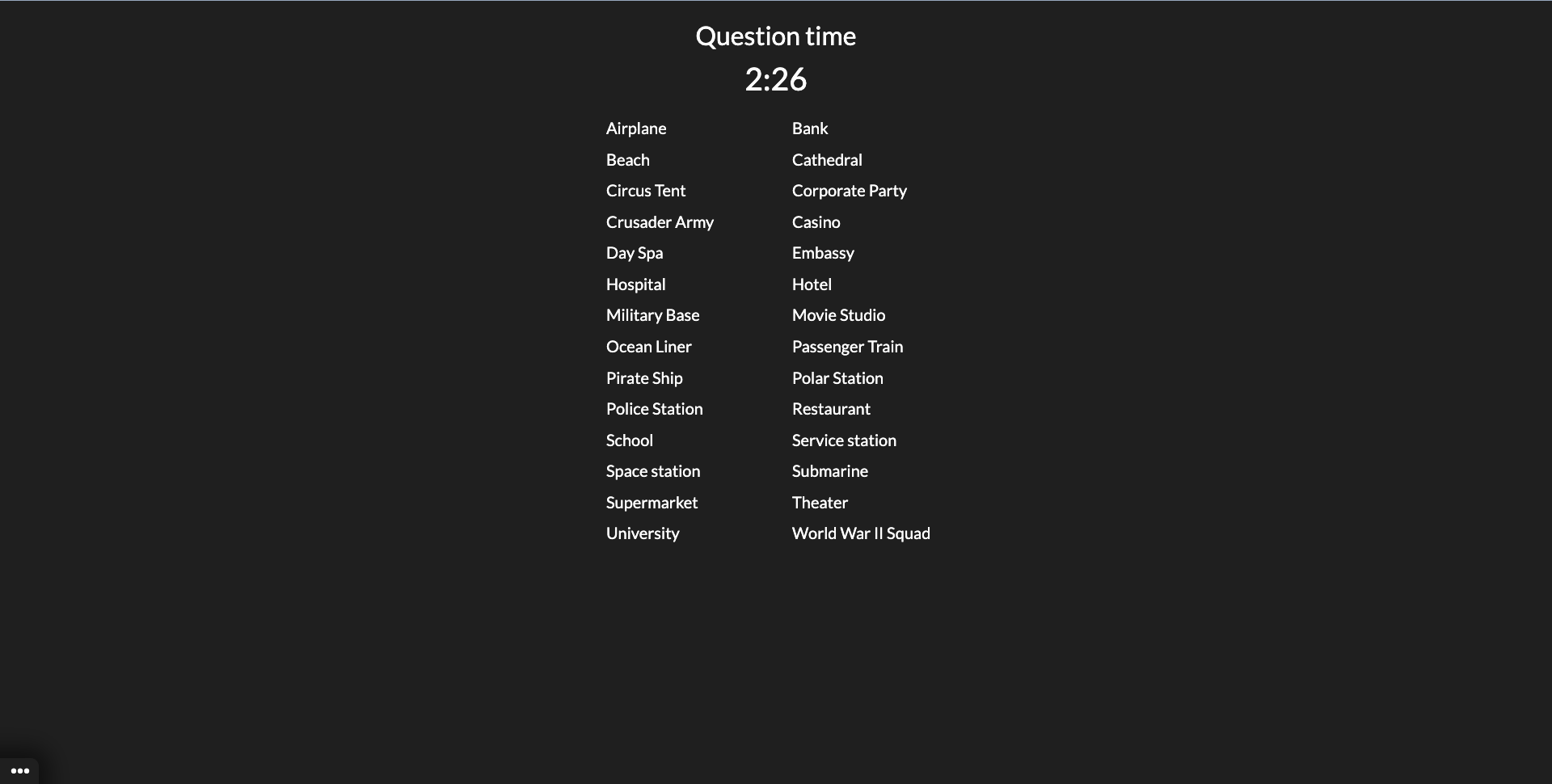The game I played is Spyfall. It’s originally a 2014 card game for 3-8 players, designed by Alexandr Ushan, and published by Hobby World. I played it with two other friends online via the platform link: https://netgames.io/games/spyfall/Links to an external site.
Target audience: This online version of the game is a multiplayer game suitable for players who are old enough to describe the given location, and to ask appropriate questions. Both a group of strangers and close friends can play the game.
Notable elements of the game:
- Players: Spyfall can accommodate 3+ players each round.
- Actions: Non-spy players need to give out information they know about the place, to conceal the location itself, and to find the spy. The spy can either try to hide, or find out the secret location.
- Rounds: Within each round, there is a certain number of spies in the game, according to the total number of players.
- Firstly, the non-spy players secretly reveal the location; the spy players know they’re the spies.



- Then, all players take turn to describe the location.
- Then, each player chooses another player to ask a question in turn.

- Lastly, the players select the spies they think. If the spy is not selected, the spy wins directly. Otherwise, the spy wins if and only if he/she successfully guesses the secret location.

- Firstly, the non-spy players secretly reveal the location; the spy players know they’re the spies.
- Relationships: The game makes the relationship among players to be closer. With more and more rounds being played, it is possible that the players would share some personal stories corresponding to the location.
- Objectives: I would say it’s an outwit game. Non-spy players need to identify the spy among them without letting the spy know their secret location, while the spies need to hide or find.
I’ve played Undercover before in this genre. There are several differences:
- “Magic Circle”: In Undercover, each player receives a random word, while in Spyfall, the word is restricted to a location.
- Rounds: In Undercover, there are several rounds, within each round, one player is eliminated; whereas in Spyfall, there’s no elimination: after the description and questioning round, the players select the spy, either the spy wins directly or the spy guesses the word, and afterwards the players need to start another round, which is a new game with a new assigned location.
- Winning Condition -> Objective: In Undercover, the spy loses if being eliminated, even though he/she has successfully guessed the word; in Spyfall, the spy still has a chance to win even if being eliminated.
- Actions: In Undercover, the players only describe the word; in Spyfall, the players also have a questioning time to select another player to ask a question.
- Setting: In Undercover, the spy is given a different but similar word as other players; in Spyfall, the spy does not know anything when describing.
In my opinion, the restriction to a location, especially in this online version, where there is an even smaller range of potential locations listed out, makes the game less fun. The spy can guess the location easily based on the description by other players in the description time. Especially when there is a large number of players, there would be a lot of descriptions and information for the spy to guess out the word. The game then becomes a simple word-selection game for spies, rather than the spy-finding game for most players.
In contrast, the one-round mechanic makes the game better. It is usual that in Undercover, the spy has guessed out that he/him is a spy, and started to describe the correct word. Then the game becomes boring and time-consuming because everyone is essentially describing the same word, and the game ends at random. Besides, it’s usual that the players run out of descriptions. These situations would not happen in Spyfall because each player only needs to provide one description, and then starts the questioning time. No players will be eliminated during the game, and everyone can always participate.
The winning condition difference is already the best I can come up with in each settings. Due to the difference in mechanics, the winning condition must differ to allow better experience.
The game Spyfall contains a lot of fun.
- It provides challenge. For spy players, it is very obvious: they need to provide description without knowing the locations, and need to hide themselves. To select another player to ask a question is challenging for all players. For non-spy players, they need to find someone who’s description does not make much sense, and to come up with a good question to reveal the identity of that player without revealing the location per se.
- It provides expression, especially when players are getting closer to each other. For example, because I played the game with two close friends, I related the location with my personal story rather than its original purpose. In general, in Spyfall, the players can gradually reveal their personal stories in their description of the given location.
One particular success is its simple rules. Even if a player does not know any rules ahead, he or she can still join the game and follow the game stream and get to know the game.
One epic fail might be the restriction. The word choice is so limited, that the spy can easily guess the location.
If I were to make changes to this game, I would definitely get rid of giving out a finite set of potential locations, or giving out a much larger set so that it’s more difficult for the spy to do cross-out selections. Besides, I would change the minimum number of players. I did the 3-player version, and found out that it’s boring, because it’s easy for non-spy players to find the spy, and it’s easy for the spy to guess the location. Probably 5 is a better min number.


